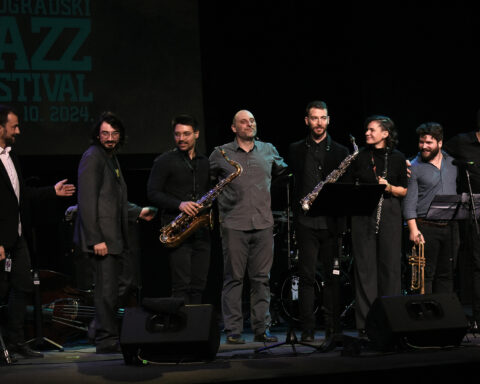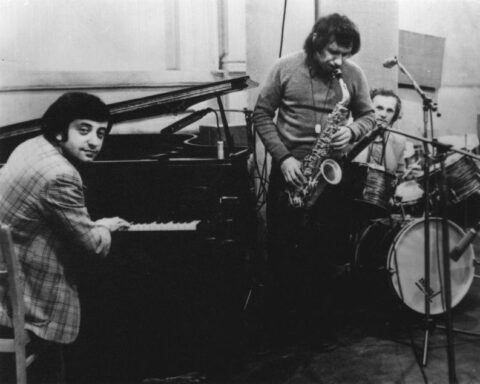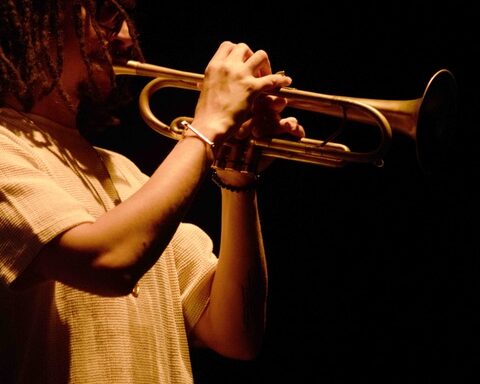Some two dozen JJA activists and more colleagues across the world launched “Working the Beat: Jazz in Today’s Media,” via four Zoom video calls in February 2020 — as an endeavor to energize discussion of common issues regarding music and music journalism using several new digital tools and platforms that enable trans-local collaborations. The final tutorial, with J JA members from Madrid and Tel Aviv as well as Western Massachusetts and Chicago, is here. Access is free.
Plans were made for a March 17 open town hall-style discussion on advancing women of color jazz journalists; to establish an informal network of jazz journalists spread around the Pacific Rim; to hold further Zoom calls at time compatible with participants in time zones other than North America, and to continue weekly calls on Tuesdays. If you want to participate, email Howard Mandel, president@jazzjournalists org, or Alex Rodriguez, alex@jazzjournalists.org.
The recording of the entire first call is embedded below. Access is free. A second call, held February 11, is also available for viewing, as is the third.
In the first of the four calls campaign instigator Alex Rodriguez introduced a suite of digital tools, including Slack and Loomio. which he advises can “help us work together to support one another’s projects, no matter where we’re based.” Trans-locality was demonstrated by the diverse locales of attendees including JJA board members Susan Brink (Schenectady), Andy Gilbert (Berkeley), Neil Tesser and president Howard Mandel (both the latter, Chicago); Mirian Arbelejo (Madrid), Bob Rosenbaum (Tel Aviv), former VP James Hale (Ottawa), members David Basse (Kansas City), John Chacona (Cleveland), Peter Gerler (Newton, MA), Rob Sherwood (Austin, TX) and John Fenton in New Zealand (when he was on the Feb 4 8 pm EST call, in Auckland it was 3 pm, Wednesday, Feb. 5).
After introductions, Rodriguez (who is based in central Massachusetts) outlined the basics of signing into and using the platforms, distinguishing their various uses. Among communications they facilitate are real-time chats, one-on-one and group threads, teleconferencing with recordings, and collaboration project documentation. Considering “Working the Beat” an experiment in media communications, the JJA is currently picking up all fees for these services.
Group members then brainstormed project ideas utilizing these apps’ functions, both for themselves (conducting multi-voice online interviews, co-creating/co-editing potentials) and upcoming JJA events such as the 2020 Jazz Heroes, to be named this spring. Chacona took minutes — a skill still useful for those who read faster than they listen.
Currently the “Working The Beat” project is open to all comers. It is intended most of all for jazz journalists, however — the writers, photographers, broadcasters, videographers, bloggers and other media professionals laboring to keep news and views of jazz in public discourse.
The JJA has a long history and deep archive of interactive online video and multi-media discussions, more than three dozen tutorial and issue-oriented posts on view at the Jazz Journalists Association YouTube channel.






I'm so grateful for the link. I'm based in Europe, so with the time difference It's really a challenge to connect.
Keep the good work!
Mirian